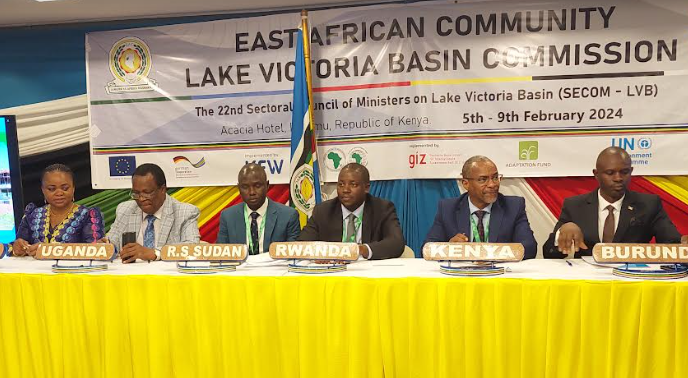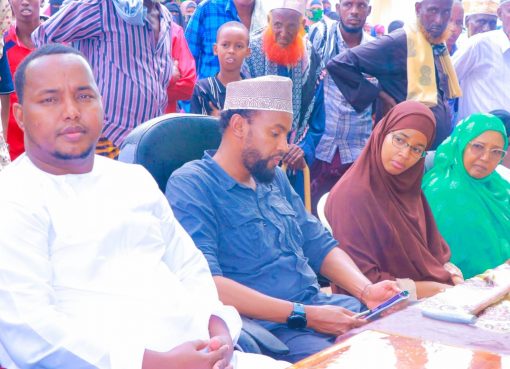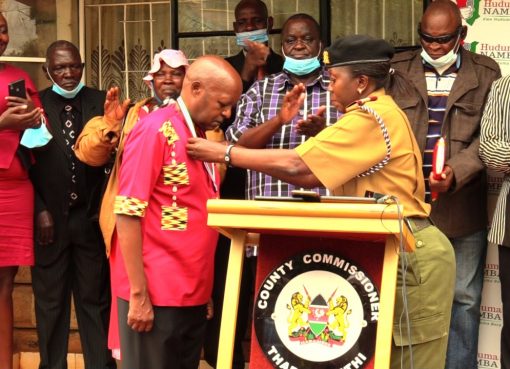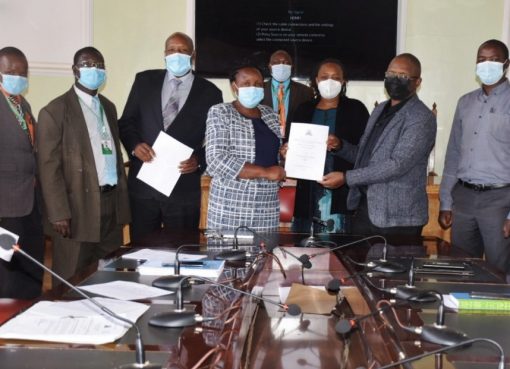The East Africa Community (EAC) Member States are set to adopt a unified water quality policy, to safeguard Lake Victoria and other water bodies in the region.
Delegates, among them Cabinet Ministers and Permanent Secretaries from the seven Member States, agreed during the 22nd Sectoral Council of Ministers on Lake Victoria Basin (SECOM-LVB) meeting in Kisumu, to embark on the process of developing a single policy, to address issues affecting water quality in the region.
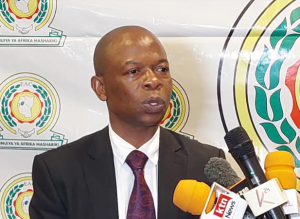
The move targets to have a unified approach to conservation efforts, following concerns over the quality of water in Lake Victoria and other water bodies in the area.
EAC Member States have different water quality policies, which have affected conservation efforts in the Lake, amidst rising pollution.
Speaking after the meeting, Lake Victoria Basin Commission (LVBC), Executive Secretary (ES), Dr. Masinde Bwire, said the Cabinet Ministers agreed to work on a framework to fast-track the development of the policy.
The policy, he said, was expected to give guidelines on what needs to be done to restore the lake’s delicate ecosystem and water quality in other water bodies in the area.
Dr. Bwire said that once finalised, the document to be adopted by all seven EAC Member States shall be implemented between 2025-2050, to restore water quality.
LVBC, which is an East Africa Community (EAC) institution responsible for coordinating the sustainable development of the Lake Victoria Basin, will spearhead the exercise to safeguard the water bodies.
“As you are aware, Lake Victoria, which is a big resource in this area, has a very serious water quality problem. This is not only affecting fish production but also other economic benefits derived from the water body,” he said.
Once the policy is in place, LVBC, he added, will mobilise resources from development partners and roll out several conservation initiatives to restore the lake and other water bodies in the catchment area.
“This is a long-term initiative that will require huge resources to implement. We are going to work with the partner states and our development partners, to roll it out,” he said. The Kenyan delegation was headed by Water, Sanitation, and Irrigation Cabinet Secretary (CS), Zachariah Njeru, and his Mining, Blue Economy, and Maritime Affairs counterpart, Salim Mvurya.
Others who attended the meeting included South Sudan’s Water Minister Pal Mai Deng, Tanzania’s Deputy Minister for Water, Maryprisca Mahundi, Uganda’s Minister for Environment, Ephraim Kamuntu, Burundi’s Agriculture Minister, Prosper Dodiko, and Rwanda’s Environment Permanent Secretary (PS), Patrick Karera.
South Sudan Minister for Water and Irrigation, Pal Mai Deng, who chaired the meeting, said Lake Victoria was an important resource for the EAC community, which must be conserved at all costs.
“Lake Victoria is a huge resource that benefits millions of people in this region. River Nile, whose source is Lake Victoria, passes through South Sudan, and the benefits derived from it cannot be overemphasised,” he said.
The proposed joint conservation efforts and water quality policy, he said, were critical to enhancing close ties between the partner nations and fostering integration.
He challenged EAC countries to make their contributions towards the community’s programmes on time to ensure the common desire for one strong community is attained.
Kenya’s Water CS, Zachariah Njeru, said the common resolve to sustainably manage Lake Victoria, was critical as partner states moved to harness blue-economy activities.
The drive, he added, would catapult regional integration and foster harmony and peaceful coexistence in the East Africa region.
By Chris Mahandara


